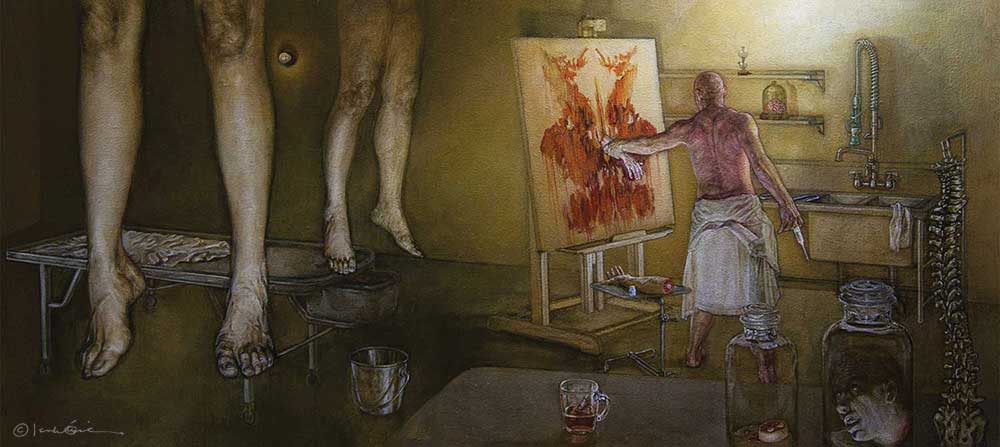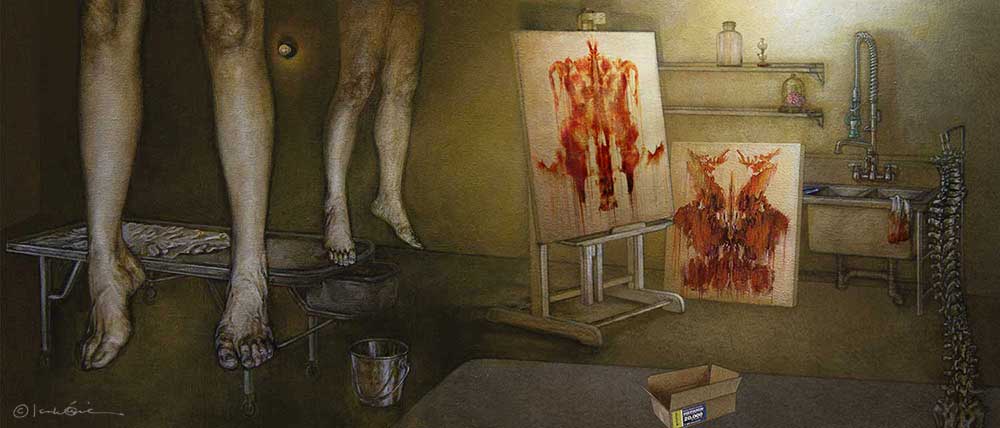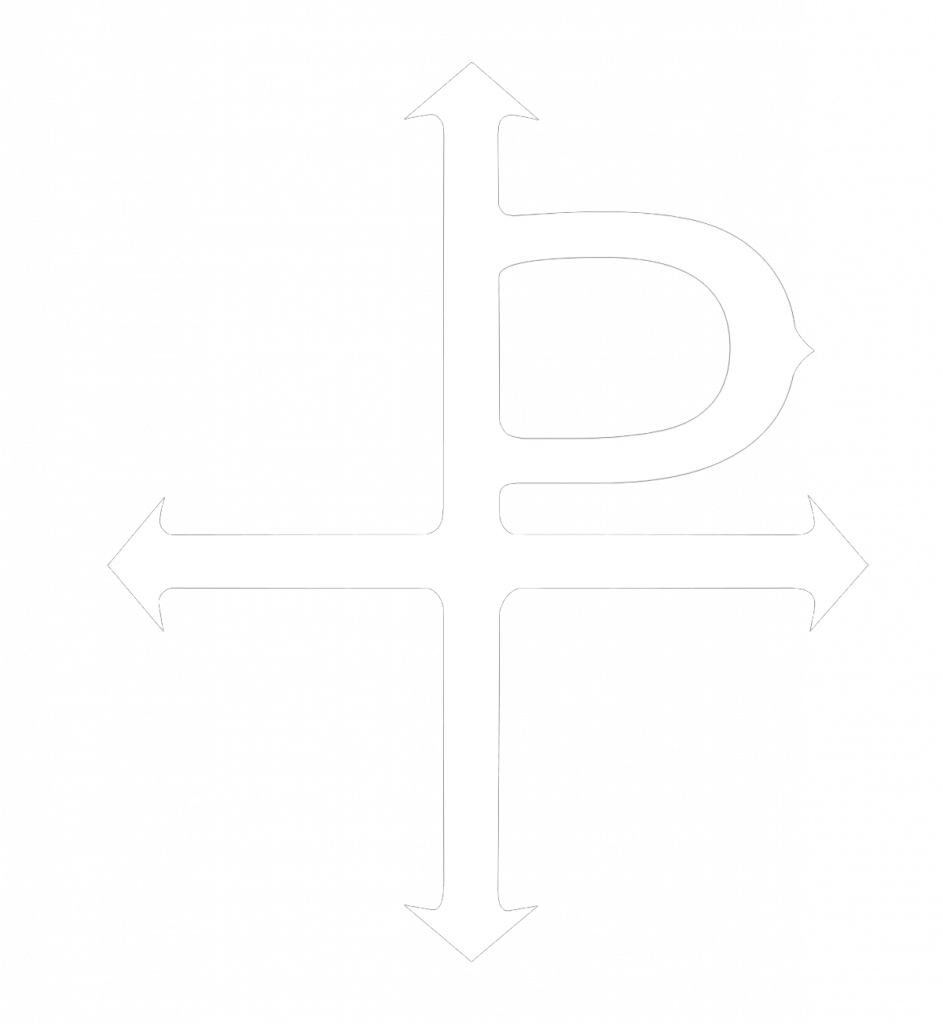
In order to use limbs as painting implements and turn blood into a feasible pigment, an anti-coagulant is essential in a post-mortem scenario. Even after a few days, untreated blood will mix with the other fluids of decomposition and may ooze or seep, but not flow like paint.
Without a heartbeat, blood, like water will seek the lowest level. Therefore, bodies must be hung upright so that bodily liquids will accumulate at the limbs.

The basis of Dr. Hermann Rorschach’s inkblots remains vague. The designs do not appear to follow a particular system or order, and one is inclined to believe that they were composed arbitrarily. Perhaps the only true patterns involved are in the interpretations of the test subjects’.
Klecksography is the making of fanciful pictures by dropping wet ink on paper. The paper is then folded in half to capture a mirror image of the ink on the blank side. It was a popular pastime in Europe during the turn of the 20th century, especially amongst children. Its inventor, Justinius Kerner, came upon this method accidentally, and used it to illustrate a book of poems, Klecksographien – a probable reference of Dr. Rorschach.

Symmetry is the most distinct feature of all Rorschach’s designs. However, closer investigation shows that the reflecting halves of each design aren’t truly identical –Just like the brain. Symmetry automatically creates a clear central axis, with a left, and a right hemisphere — an instant sense of balance and order.
Going through extra effort to paint symmetry despite the availability of methods as convenient as folding a piece of paper in half emphasizes how everything is oriented towards the fulfillment of these two ideas — or even just a semblance of them. In this light, endeavors that seem random or cruel have the same basis as breathing, or eliminating waste.

